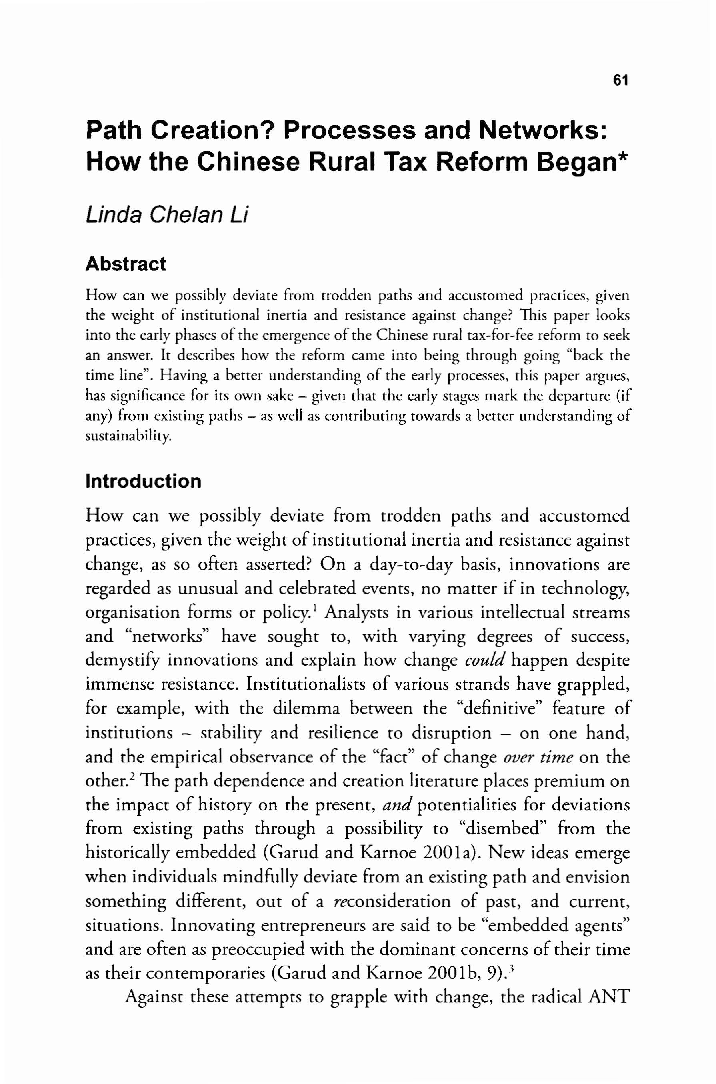| Article ID | Journal | Published Year | Pages | File Type |
|---|---|---|---|---|
| 1061612 | Policy and Society | 2006 | 24 Pages |
Abstract
How can we possibly deviate from trodden paths and accustomed practices, given the weight of institutional inertia and resistance against change? This paper looks into the early phases of the emergence of the Chinese rural tax-for-fee reform to seek an answer. It describes how the reform came into being through going “back the time line”. Having a better understanding of the early processes, this paper argues, has significance for its own sake – given that the early stages mark the departure (if any) from existing paths –as well as contributing towards a better understanding of sustainability.
Related Topics
Social Sciences and Humanities
Social Sciences
Geography, Planning and Development
